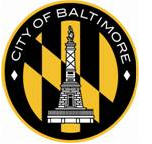Mayor Announces Details of Baltimore City Pandemic Rent Court Program, Focused on Preventing Evictions
Monday Sep 13th, 2021

FOR IMMEDIATE RELEASE
BALTIMORE, MD (Monday, September 13, 2021) — Mayor Brandon M. Scott is announcing the details of a program starting today that will connect people and families facing eviction with resources and support at the courthouse. The Baltimore City Pandemic Rent Court Program will allow litigants to apply for back-rent assistance on-site at rent court through Baltimore’s Eviction Prevention Program, which is administered by the Baltimore City Community Action Partnership (BCCAP) in the Mayor’s Office of Children and Family Success (MOCFS). This program is just one component of the Scott administration’s eviction prevention strategy for vulnerable residents and families.
Through the Baltimore City Pandemic Rent Court Program, BCCAP staff will work with landlords and tenants before and during rent dockets to resolve issues and settle debts. Judges can refer litigants to on-site BCCAP staff to apply for back-rent assistance. Additionally, continuances, stipulated dismissals, and stays can be used to allow time for an Eviction Prevention Program resolution to play out, helping avoid trial, judgment, warrant, and eviction where litigants are eligible for back-rent assistance.
On Friday, Mayor Scott sent a letter to the District Court of Maryland for Baltimore City’s Administrative Judge and Judge-In-Charge of the Civil Division requesting their partnership in promoting the Baltimore City Pandemic Rent Court Program in the courtroom. The letter also encouraged the judges to use their authority to recommend voluntary postponements of pending evictions and share eviction filing information with the administration in order to better serve Baltimoreans in need.
“To ensure a strong start to the program and its long-term effectiveness, I am calling on the court to leverage its authority to proactively promote the Baltimore City Pandemic Rent Court Program with tenants and landlords to maximize eviction diversion,” wrote Mayor Scott in the September 10, 2021 letter. “Our goal is maximizing the best possible outcomes for tenants and landlords — outside the judicial process — that keep residents and families housed during this pandemic and beyond.”
“The Pandemic Rent Court Program represents one of several critical partnerships we have forged to maximize the reach and impact of the Eviction Prevention Program,” said MOCFS Executive Director Tisha Edwards. “The city coming together with the District Court, the Sheriff’s Office and Public Justice Center attorneys to leverage resources outside the legal system to protect Baltimore families from eviction demonstrates our united commitment to not just resolving the immediate eviction crisis, but to growing housing stability in Baltimore over the long term.”
In addition to this court-based program, the Scott administration continues to prioritize eviction prevention by providing rent support, back rent recovery, relocation services, and legal representation.
As of August 27, Baltimore City’s Eviction Prevention Program disbursed $21.6 million in past-due rent payments, assisted 4,487 households to come current on rent, and averted approximately 1,044 eviction proceedings. Residents with eviction notices receive expedited assistance. The program is administered by MOCFS in partnership with the Mayor’s Office of Homeless Services (MOHS) and the Baltimore City Department of Housing and Community Development (DHCD).
To stop cases from landing in the courts, the Scott administration has brokered an agreement with the Baltimore City Sheriff’s Office, which is sharing information with the City about pending evictions so that immediate action can be taken to settle debts and keep people in their homes. Staff from MOCFS uses that list to contact landlords to see if they are willing to receive back rent through the Eviction Prevention Program so that tenants can avert eviction.
Additionally, DHCD is working to stand up a Right to Counsel program, which provides eligible tenants with access to counsel in eviction proceedings and education regarding tenants’ rights. Currently, DHCD is working with legal assistance providers, a benefits coordinator, and community advocates to design the implementation of this program, as well as create an education and outreach plan.
“We know that when tenants have access to legal services, they are less likely to be unfairly evicted,” said Acting Housing Commissioner Alice Kennedy. “It prevents displacement and homelessness, and reduces housing instability and trauma.”
To support the development of the Right to Counsel program, an initial $600,000 has been allocated to the program and DHCD will direct another $1.9 million in grant funding to support this effort.
Tenants and landlords seeking assistance from Baltimore’s Eviction Prevention Program can find more information on the Mayor’s Office of Children and Family Success’s website: bmorechildren.com/residents.